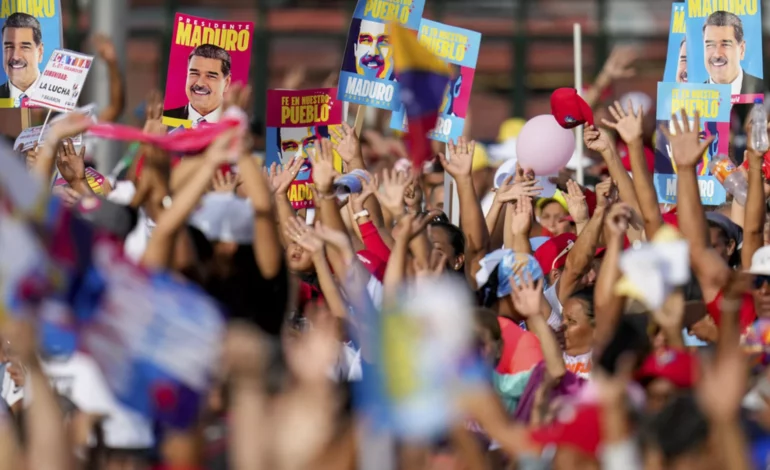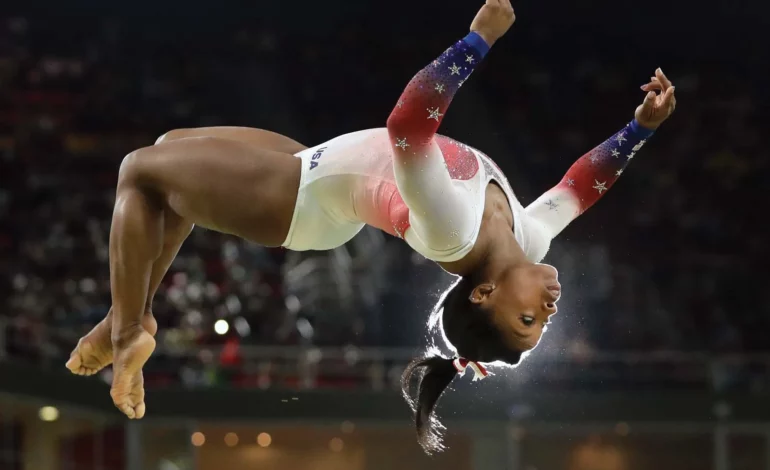Venezuela Votes in Historic Presidential Election: A Pivotal Moment for the Nation

Venezuela Votes in Historic Presidential Election: A Pivotal Moment for the Nation
Venezuela finds itself at a crossroads as citizens pour into polling stations to exercise their democratic rights in a pivotal presidential election. The stakes could not be higher for the nation’s future. This election, featuring incumbent President Nicolás Maduro, is being called one of the most consequential in Venezuela’s recent history. With the country grappling with severe economic and social crises, the outcome could lead to dramatic shifts in governance or a continuation of the status quo that has plagued the nation under Maduro’s leadership.
Background: The Context of Venezuela’s Crisis
Venezuela, once the richest nation in South America due to its vast oil reserves, has been in a state of turmoil for over a decade. Hyperinflation, shortages of food and medicine, and rampant poverty have driven millions to flee the country. Maduro, who inherited the presidency from Hugo Chávez in 2013, has faced mounting criticism both domestically and internationally for his government’s handling of the economy and alleged human rights abuses.
The opposition, consisting of a coalition of various political parties and movements, has capitalized on this dissatisfaction. United more than ever, they are calling for a change in leadership and policies. The opposition’s strategies range from grassroots mobilization to reaching out for international support, but their chief challenge remains in mobilizing voters who have become disillusioned with the political process over the years.
The Election: A Battle of Ideologies
Maduro’s Tenure
Nicolás Maduro’s presidency has been marked by significant controversy. He has been accused of undermining democratic institutions, consolidating power, and using state resources to suppress dissent. His government’s response to the economic crisis has included tight control of the currency and state management of essential services, which many critics argue has contributed to the current dire situation.
The Opposition’s Rise
In contrast, the opposition has been more vocal and organized, aiming to present an alternative vision for Venezuela. Leaders such as Henrique Capriles and María Corina Machado have spearheaded efforts to galvanize public support, focusing on themes like economic recovery, human rights, and social justice. Their campaign messages resonate particularly with a population that has suffered immense hardship in the past years.
The coalition has undergone its own internal struggles but appears to have coalesced around common goals, emphasizing the need for a democratic transition. They aim to articulate a plan for economic stabilization, rebuilding essential services, and restoring trust in government institutions.
Current Atmosphere: Voter Sentiment and Challenges
As polling day rolls around, the atmosphere in Venezuela is charged with tension and hope. Although many citizens have grown skeptical about the political process, the promise of change is still alive. Economic hardships and social unrest have pushed millions to take a stand, making this election one filled with passion and urgency.
However, significant challenges remain:
- Mistrust in Elections: A considerable segment of the population fears that the elections may be rigged, a sentiment fueled by past experiences where electoral processes lacked transparency.
- Voting Logistics: With many citizens having fled the country and economic conditions affecting mobility, there are genuine concerns about voter turnout and participation.
- International Scrutiny: The outcome of this election is not just a matter for Venezuelans; it is observed globally. Countries such as the United States and members of the European Union have expressed support for a free and fair election process, while also reiterating their concerns over Maduro’s grip on power.
Looking Ahead: What If Change Happens?
Should the opposition win, the interim government will face a daunting array of tasks—namely, addressing the humanitarian crisis, stabilizing the economy, and restoring democratic practices. Transitional justice, reparations, and reconciliation efforts will also play critical roles in healing a deeply divided society.
Conversely, if Maduro retains power, Venezuela may continue on its current trajectory, characterized by economic devastation and societal unrest. The ripple effects of either outcome will likely affect not only Venezuela but also neighboring countries and the broader international community.
FAQ
Q1: Who is Nicolás Maduro?
- A1: Nicolás Maduro is the current president of Venezuela, having assumed office in April 2013. He succeeded Hugo Chávez and has faced significant criticism for his administration’s handling of the economy and alleged human rights violations.
Q2: What are the main issues facing Venezuela?
- A2: Venezuela is facing a severe economic crisis known as hyperinflation, shortages of basic goods, widespread poverty, and human rights violations. Many citizens have fled the country in search of better living conditions.
Q3: What is the role of the opposition in this election?
- A3: The opposition aims to challenge Maduro’s long-standing rule by presenting a united front advocating for political change, economic recovery, and restoring democratic governance in Venezuela.
Q4: How significant is international involvement in this election?
- A4: International scrutiny is substantial, with various countries supporting calls for free and fair elections in Venezuela, which could influence the legitimacy of the electoral process and any subsequent governance.
Conclusion
As Venezuelans cast their votes, the future of their nation hangs in the balance. Whether the outcome affirms Maduro’s continued rule or ushers in a new era of political change, one thing is clear: the decision made on this historic day will echo throughout the fabric of Venezuela for years to come.

